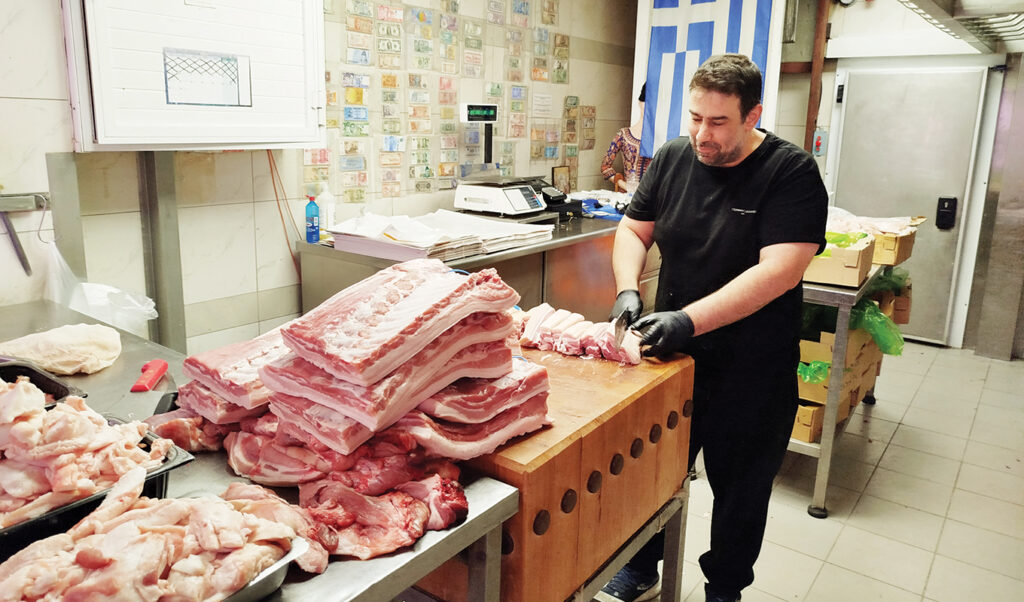One euro more per kilo will be the price for beef starting in October, while the price of lamb will rise even more if a quarantine (lockdown) is imposed due to the foot-and-mouth disease epidemic affecting livestock. At the same time, mass imports from Bulgaria and Romania continue unimpeded, as these countries are fully integrated into the Schengen Treaty, meaning there are no restrictions on the movement of citizens and products, even though their alignment with European health standards is non-existent. As for dairy and cheese products, prices remain almost unchanged, however a sudden increase is expected in the coming days for fresh cow’s milk, yogurt (Greek-style), cow butter, milk cream and evaporated milk, as well as cheeses such as white cheese (feta), hard cheese (kefalotyri), semi-hard cheese (kasseri, graviera), cheddar, gouda, mozzarella, and parmesan. According to the latest data, 3% of sheep, goats and cattle have been culled and burned, as infectious diseases have been spreading through herds and farms for more than a year.
Price increases in beef and lamb due to foot-and-mouth disease
As revealed by our investigation, lamb is sold for €13.80-14.20 per kilo at Varvakeios market, €15-16 at neighborhood butcher shops and approximately the same price at supermarkets.
Price increases for beef, however, are continuous due to the Green Deal, the European agreement to limit beef consumption by 2030, aimed at a general change in the food chain. “With what they’re doing, in a month we’ll be selling beef at €16 and at Christmas at €20,” says butcher Ilias Giannopoulos. Also, Dim. Aloupis, a veteran Varvakeios trader, raises the issue of quality. “Consumers must be more careful than ever before. Quality is constantly declining due to what’s happening. They shouldn’t be attracted by offers and supposedly good prices. We buy very expensively and, to survive without putting people at risk, we sell with minimal profit,” he emphasizes. From August 2024 to September 5, 2025, the total deaths from foot-and-mouth disease amount to 262,854 animals, of which 97,632 occurred in 2024 and 165,222 this year. Regarding deaths from plague -which spread to sheep and goat farming last year- they reached 38,000. In total, over 12 months, the number of dead animals from zoonotic diseases in sheep and goats -which constitute the largest part of domestic livestock- amounts to 300,854.
No real control on imports from third countries
However, while the European Union sets strict rules on internal livestock farming and agricultural production, there is no real control on imports from third countries, and especially for agricultural products there is rarely origin labeling, with consumers choosing the cheaper option over those produced with minimal pesticide use, specific green practices and, consequently, higher cost and higher price. Already, through the Mercosur agreement, signed mid-week, increased imports of beef from South American countries are planned.
For their part, livestock farmers are demanding immediate measures to protect livestock, as well as compensation payments to affected farmers. It’s worth noting that the demands include stopping the culling of livestock for animals not affected by foot-and-mouth disease, as well as vaccination of sheep and goats without any delay, immediate reopening of slaughterhouses that remain closed, and immediate payment of compensation to those affected.
Published in Parapolitika




